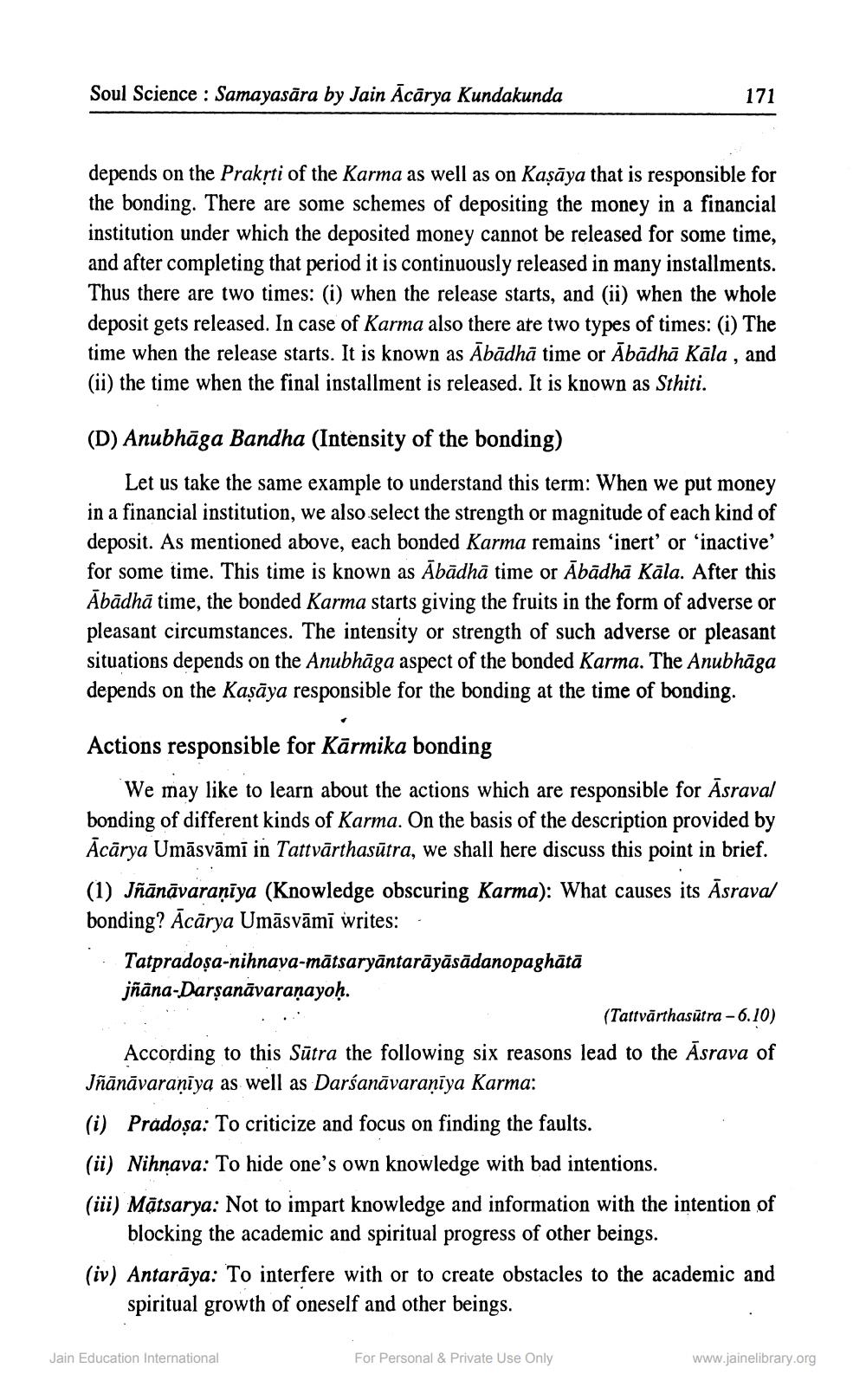________________
Soul Science : Samayasāra by Jain Ācārya Kundakunda
171
depends on the Praksti of the Karma as well as on Kaşāya that is responsible for the bonding. There are some schemes of depositing the money in a financial institution under which the deposited money cannot be released for some time, and after completing that period it is continuously released in many installments. Thus there are two times: (i) when the release starts, and (ii) when the whole deposit gets released. In case of Karma also there are two types of times: (i) The time when the release starts. It is known as Ābādhā time or Abādhā Kāla , and (ii) the time when the final installment is released. It is known as Sthiti.
(D) Anubhāga Bandha (Intensity of the bonding)
Let us take the same example to understand this term: When we put money in a financial institution, we also select the strength or magnitude of each kind of deposit. As mentioned above, each bonded Karma remains 'inert' or 'inactive' for some time. This time is known as Ābādhā time or Ābādhā Kāla. After this Ābādhā time, the bonded Karma starts giving the fruits in the form of adverse or pleasant circumstances. The intensity or strength of such adverse or pleasant situations depends on the Anubhāga aspect of the bonded Karma. The Anubhāga depends on the Kasāya responsible for the bonding at the time of bonding.
Actions responsible for Kārmika bonding
We may like to learn about the actions which are responsible for Āsraval bonding of different kinds of Karma. On the basis of the description provided by Ācārya Umāsvāmī in Tattvārthasūtra, we shall here discuss this point in brief. (1) Jñānāvaraṇīya (Knowledge obscuring Karma): What causes its Asraval bonding? Ācārya Umāsvāmī writes:
Tatpradoșa-nihnava-mātsaryāntarāyāsādanopaghātā jñāna-Darşanāvaraņayoḥ.
(Tattvārthasūtra - 6.10) According to this Sūtra the following six reasons lead to the Asrava of Jñānāvaraṇīya as well as Darśanāvaraṇīya Karma: (i) Pradoșa: To criticize and focus on finding the faults. (ii) Nihnava: To hide one's own knowledge with bad intentions. (iii) Mātsarya: Not to impart knowledge and information with the intention of
blocking the academic and spiritual progress of other beings. (iv) Antarāya: To interfere with or to create obstacles to the academic and
spiritual growth of oneself and other beings.
Jain Education International
For Personal & Private Use Only
www.jainelibrary.org




